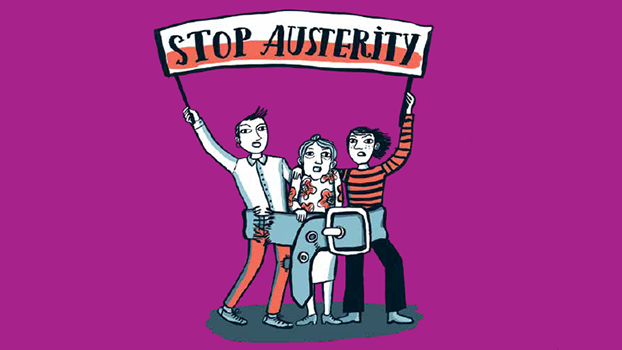
The Legacy of Socialism after Neoliberal Crisis: Austerity Measures and Gender Equality in Slovenia is a reflection on and an analysis of the consequences austerity measures had for the lives of women and for gender equality in Slovenia after the economic crises in 2008.
Anamarija Šiša is a researcher at the Research Centre for the Terminology of Social Sciences and Journalism and a teaching assistant and a PhD student at the Chair of Media Studies at the Faculty for Social Sciences (University of Ljubljana, Slovenia).
Antonija Todić is a researcher at the Institute for Ethnic Studies and a PhD student of Sociology of Culture at the Faculty of Arts of the University in Ljubljana. She also works as a translator in the field of social sciences, the humanities and art.
This paper is part of a compilation of studies from different European countries. You can find all of them here: www.rosalux.de/austerity.
Our work started in January 2020 and was somewhat postponed and prolonged by the current COVID-19 pandemic. Even though the pandemic has instigated radical economic and ideological shifts around the world we have decided to keep our focus on the austerity measures and the consequences they had on the lives of women until the start of the COVID-19 pandemic in March 2020 (in Slovenia). Therefore, we haven’t included analysis of current governmental anti-corona measures but have hopefully laid the groundwork for future researchers to continue where we have left off. Some radical moves have already been taken by the current right-wing Slovene government led by PM Janez Janša.
We are most worried that the reproductive work done mostly by women won’t be recognised. Particularly vulnerable groups, women employed in health and long-term care sectors, those in part-time, low-paid and precarious jobs have once again been ignored by governmental policies and anti-corona aid packages. In the conclusion we will offer a reflection on the last economic crises and connect it with the current one.
Download the PDF